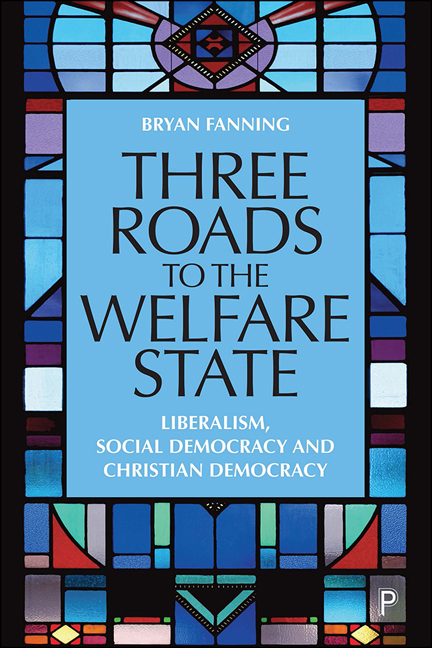Book contents
- Frontmatter
- Contents
- About the author
- Preface
- 1 Three roads
- 2 The invention of laissez faire
- 3 Utopian socialism
- 4 Reform liberalism and technocracy
- 5 Catholic social thought versus modernity
- 6 The case for social democracy
- 7 Social engineering versus democracy
- 8 The rise of neoliberalism
- 9 European Christian democracy
- 10 Legacies
- Notes
- Select bibliography
- Index
7 - Social engineering versus democracy
Published online by Cambridge University Press: 13 May 2022
- Frontmatter
- Contents
- About the author
- Preface
- 1 Three roads
- 2 The invention of laissez faire
- 3 Utopian socialism
- 4 Reform liberalism and technocracy
- 5 Catholic social thought versus modernity
- 6 The case for social democracy
- 7 Social engineering versus democracy
- 8 The rise of neoliberalism
- 9 European Christian democracy
- 10 Legacies
- Notes
- Select bibliography
- Index
Summary
In a 1925 speech, John Maynard Keynes reflected that by the late nineteenth century economists no longer felt it necessary to address the population question as identified by Malthus. Promiscuity, as he put it, had ceased to be regarded as an economic problem and came to be addressed scientifically by coldly statistical and amoral population studies. Instead, concerns about overpopulation were highlighted by advocates of women's rights, sex education and contraception, such as Annie Besant (1847–1933). Keynes's 1925 address to the by-then moribund Liberal Party declared that ‘sex questions’ were about to enter the political arena:
The very crude beginnings represented by the Suffrage Movement were only symptoms of deeper and more important issues below the surface. Birth Control and the use of Contraceptives, Marriage Laws, the treatment of sexual offences and abnormalities, the economic position of women, the economic position of the family, – in all these matters the existing state of the Law and of orthodoxy is still medieval – altogether out of touch with civilised opinion and civilised practice and with what individuals, educated and uneducated alike, say to one another in private.
Keynes’ checklist referenced the emancipatory possibilities of birth control for women but also alluded to a by-then well-established eugenic social engineering agenda that had long impressed the reformist intellectual circles in which he moved.
Feminist advocacy of birth control and contraception emerged during the late nineteenth century alongside campaigns for the rights to vote for women. By then, the influence of Charles Darwin and Herbert Spenser had superseded that of Malthus. Preoccupations with reducing the birth rate were joined by obsessions with eugenics among some influential social reformers in Britain, in several European countries and in the United States. The term eugenics was coined by the British biologist Francis Galton in 1883 to refer to the ‘science,’ based on his cousin Darwin's theories of natural or sexual selection, of manipulating hereditary factors through breeding, contraception or sterilisation in order to eliminate the reproduction of those deemed to be inferior. The underlying presumption was that there were significant inheritable differences between individuals and that if undesirables could be prevented from having children then social problems associated with these could be ameliorated.
- Type
- Chapter
- Information
- Three Roads to the Welfare StateLiberalism, Social Democracy and Christian Democracy, pp. 135 - 160Publisher: Bristol University PressPrint publication year: 2021



